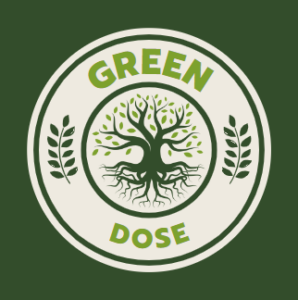In recent years, the concept of cloning has evolved from a controversial idea into a burgeoning field of scientific inquiry and commercial interest. With breakthroughs in genetic engineering, biotechnology firms and private laboratories around the world have started exploring—and in some cases, offering clones for sale. These clones are not always the science-fiction staples of fully grown human duplicates, but rather biological replicas of animals, plants, and even cells. The market for clones, while still niche and tightly regulated in many countries, is growing rapidly, with implications that stretch across agriculture, medicine, conservation, and ethics.
What Is Cloning?
Cloning is the process of creating genetically identical copies of biological organisms. There are three main types of cloning: gene cloning (copying segments of DNA), reproductive cloning (producing an organism with the same DNA as another), and therapeutic cloning (creating embryonic stem cells for medical purposes).
When people speak about clones for sale, they are typically referring to reproductive cloning, especially in animals. These clones are created through a process called somatic cell nuclear transfer (SCNT), where the nucleus of a donor cell is inserted into an egg cell whose nucleus has been removed. The resulting embryo is then implanted into a surrogate mother, leading to the birth of a genetic copy of the donor organism.
The Commercial Market for Clones
Cloning has established a surprising foothold in the commercial world, especially in the animal industry. Pet cloning is perhaps the most publicized and emotionally charged example. Several companies, particularly in countries like the United States, South Korea, and China, offer services to clone beloved cats, dogs, and even horses. Clients often pay tens of thousands of dollars to replicate a pet with the hope of rekindling a cherished emotional bond.
In the agricultural sector, livestock cloning has emerged as a tool to replicate animals with desirable traits, such as high milk production in cows or rapid weight gain in pigs. These cloned animals can help improve efficiency and consistency in farming, which is a major draw for producers.
In addition, rare and endangered animals have also been cloned as part of conservation efforts. Scientists have successfully cloned species like the black-footed ferret and the Przewalski’s horse, raising hopes that cloning could be used to restore biodiversity and even revive extinct species in the future.
Ethical and Legal Considerations
Despite its promise, cloning remains one of the most ethically fraught areas of biotechnology. Critics argue that cloning commodifies life and poses significant animal welfare concerns, especially when high failure rates and health complications in clones are considered. Many clones suffer from developmental issues, premature aging, or compromised immune systems.
Human cloning, while technically feasible, is widely condemned and legally banned in most countries. Ethical concerns include the psychological wellbeing of clones, potential abuse of the technology, and profound questions about identity, autonomy, and individuality.
There is also a debate over the ownership of cloned organisms. Who owns the rights to a clone—the individual who paid for it, the lab that created it, or the donor organism? Intellectual property rights in this realm are still murky, with few clear legal precedents.
Cloning in Medicine and Research
Outside of commercial use, cloning is making significant strides in medical research. Cloned cells and tissues are used in regenerative medicine, drug testing, and the development of personalized therapies. Stem cell-based therapeutic cloning holds promise for treating conditions like Parkinson’s disease, spinal cord injuries, and heart disease. While these applications are still in the experimental stage, they suggest a future where cloning could revolutionize healthcare.
Moreover, cloned human embryos have been created for research purposes to study early developmental biology and genetic diseases. While such research is tightly controlled and often controversial, it provides invaluable insight into the human genome and potential therapies.
The Future of Cloning for Sale
As the science matures and public attitudes evolve, the market for clones could become more diverse and accessible. Future applications may include cloned organ transplants, genetically tailored pets, and even customized livestock for specific climates or nutritional needs.
However, broader acceptance will depend on the resolution of ethical, legal, and safety concerns. Regulatory frameworks must catch up with the pace of innovation, ensuring that cloning is used responsibly and transparently.
In conclusion, the sale of clones is no longer confined to the pages of science fiction. It is a real and expanding phenomenon that offers remarkable possibilities—and serious questions. As we navigate this brave new world, the balance between innovation and responsibility will determine how cloning shapes our society in the years to come.
